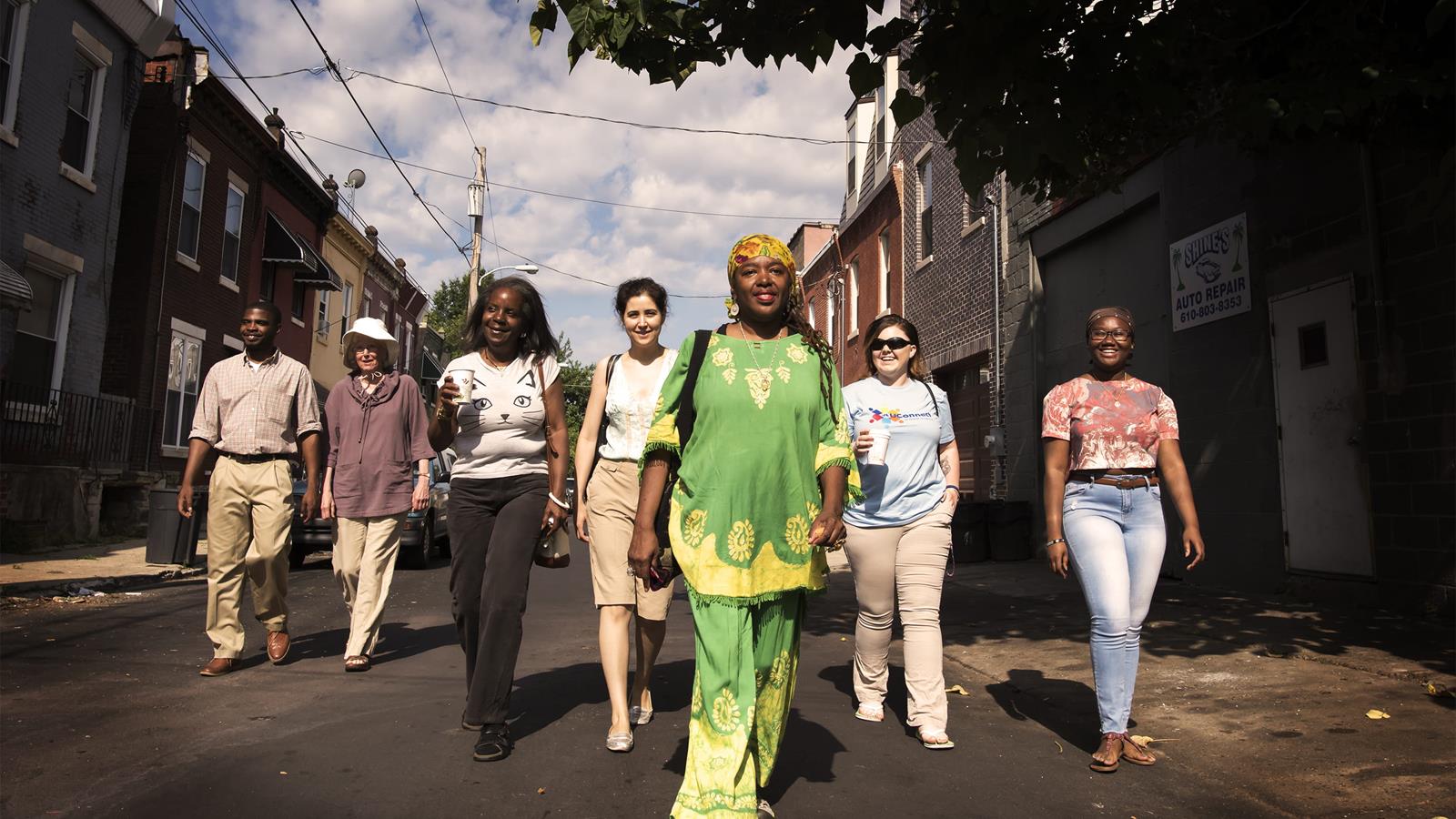Information for Faculty
Drexel University and the Office of University & Community Partnerships offer a range of supports and resources for faculty members who are interested in connecting with community partners through their teaching and research.
- The Dornsife Center for Neighborhood Partnerships, located on Spring Garden Street and straddling the Mantua and Powelton Village neighborhoods, is a space for faculty and academic units to build out their own civic engagement agendas and missions. Dornsife Center staff are ready to help with planning and shaping programming and connecting faculty with neighborhood participants.
- The Lindy Center for Civic Engagement has a special focus on course development, with course development grants and seminars available for faculty who are looking for the resources they need to build a civic engagement component into their teaching.
- The ExCITe Center is Drexel’s transdisciplinary hub for research and creative collaboration between Drexel faculty and local neighborhood partners. The Center offers meeting and program space and administrative support for faculty pursuing community-engaged research.
The Office of University and Community Partnerships further welcomes faculty members to connect with us if you have a particular interest in the ways in which Drexel pursues its mission as an engaged anchor institution, emphasizing local economic inclusion through our university's business operations.
Curriculum Design
University & Community Partnerships staff in both the Dornsife Center and the Lindy Center are available to work with Drexel faculty who are ready to explore how they can build civic engagement opportunities into their teaching agenda.
The Lindy Center runs a twice-yearly intensive workshops that prepare faculty members to create courses in a set of specific community-engaged learning (CEL) pedagogies and formats. The Lindy Center provides formal training and course development assistance, and Lindy Center staff help connect faculty members with relevant community partners and organizations with whom to coordinate CEL courses.
CEL can be shaped to enhance any department or program's learning objectives for students. CEL delivers a high quality education experience while giving students the opportunity to learn as peers with neighborhood residents, benefiting from the immense diversity that community students bring to the classroom, or as collaborative partners with local schools and nonprofits to deliver customized services or products.
Just a few examples of community-engaged learning courses include:
- Connections in Biology (BIO 200) pairs Drexel science majors with a neighborhood middle school. Drexel students spend one class meeting each week in the lab, planning activities and lessons, and a second day each week delivering those lessons to a middle school science club.
- In Story Medicine (WRIT 215) Drexel students pair up with patients at Children's Hospital of Philadelphia to create stories and TV scripts that are performed and recorded in the hospital's TV studio.
- The Opioid Crisis in Our Backyard (CJS 380) is a Side-by-Side format course held at the Dornsife Center. Drexel students and neighborhood residents think and learn together through this complex issue, with the range of life experiences among undergraduates and community students bringing the topic into stark focus.
